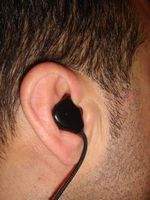As summer arrives, singers begin to worry about vocal health as summer is the season when most artists have most bookings. "Will I be able to manage all the upcoming shows without vocal fatigue?" The health of your voice is a serious matter: Your voice is a musical instrument that requires very special care, technical skills and constant practice.
Unlike guitar strings, vocal cords can’t break! Thus, they cannot be replaced. A good reason to take care of them! Vocal cords are muscles that need to be treated like any other muscle. Have you ever seen an athlete practice a sport without warming up? Without regular training or technique? Without muscle relaxation or a coach? Well, consider yourself a vocal athlete! The stage is your pitch. And like all athletes, you may get tired at times…
 About Vocal Fatigue
About Vocal Fatigue
A lot of physical, physiological, acoustical, and psychological factors can cause vocal fatigue. Among the most common symptoms are: changes in timbre, a deeper voice when talking, difficulties to reach high notes, quacks, cracks, unexpected pitch shifting (yodeling), hoarse, husky or breathy voice, soar throat or the sensation of lumps in your throat, partial or full aphonia…
If you carry on singing while having some of these symptoms, it can quickly lead to an injury or, unless you visit a laryngologist (voice specialist), other pathologies in the long run. Letting your voice rest can be a temporary solution. However, if your problems are caused by a bad singing technique and you don’t visit a laryngologist and a singing teacher, they will keep on coming back again and again.
Reasons for Voice Fatigue (a non-exhaustive list)
|
Breath, vibration and resonance? Singing is a complex system that results from the combination of three stages: breath, vibration and resonance. An experienced singer combines all three stages harmoniously. When the breathing/vibration/resonance mix is not optimal, the larynx will compensate with intrinsic and/or extrinsic rigidness, hindering a good performance. In case you don’t remember, the larynx is an organ that connects the pharynx with the trachea and hosts the vocal cords. Its role is to transform air into sound. Thus, any additional rigidness is to be avoided. |
||
Wrong or unsuitable singing technique
Some lucky people can sing intuitively without any singing lessons, but only a few have a good natural singing technique. For most singers, training their voice with a singing teacher or a voice coach is a must, regardless of their musicianship and music style. Good skills are crucial to keep your voice healthy, to sing without rigidness across the whole vocal register, to keep a well-balanced timbre, to be able to sing for hours without experiencing fatigue.
Lack of sleep
The only time when vocal cords fully rest is during sleep – when they decongest and regenerate. We recommend eight hours of sleep per day. But we are aware that long rests are hard to combine with life on the road. Specially when you have late shows and need to travel to the next gig location. Take a nap in the afternoon but avoid sleeping before live gigs. It could take the vocal cords more time to fully recover than the time you have before going up on stage.
Physical fatigue
When your body feels tired, your muscles have no energy, including your abdominal muscles and vocal cords. In this condition, it’s difficult to sing consistently.
The singer must sing dynamically and powerfully! Some of my students have realized that singing demands as much energy as doing sport. Thus, it is crucial to be physically fit. You know the saying: An ounce of prevention is worth a pound of cure! Be watchful during rehearsals and live gigs. Don’t slacken your dynamism. Your body must be in good shape. The slightest carelessness might prove fatal to your voice.
Song key
Sing within your own range, in other words, the notes you can sing easily. Do not confuse this with the vocal register, which includes all notes you can produce with your voice. Don’t strive to sing in a key that doesn’t match your range because it could be very dangerous to your voice. Singing should be as comfortable as possible. If uncomfortable, tell the musicians you are playing with and transpose the song key. Otherwise, choose a replacement song before going on tour to avoid having to change singer’s while on tour!
More me
“I can’t hear myself! Can you push me to the front of the mix? Otherwise, I’ll have to strain my voice and damage it!”
We have all heard or said this to the monitor engineer at least once. But what happens really? It is very important to have a good sound on the stage, which means you need to take time to make a good soundcheck in order for all musicians and singers feel comfortable and find their position within the band. A singer that cannot listen to his own voice will tend to strain it or shout to be able to hear himself. This is called vocal dysfunction.
To avoid this, don’t hesitate to use in-ear monitors, which provide a clearly better monitoring comfort while protecting your ears by filling up your auditory canal and attenuating external noise up to 18 or 25 dB. In-ear monitors might seem expensive but your ears and your voice have no price: trust me!
Visit an ENT specialist to have an audiogram done. That way, you can check if your monitoring discomfort isn’t directly related to some sort of hearing impairment.
Vocal Illness
Some ENT disorders like tonsillitis (tonsils), pharyngitis (pharynx), rhinopharyngitis (nasal cavity and pharynx), laryngitis (larynx) or sinusitis (sinus) can lead to aphonia or dysphonia. Say what? Dysphonia refers to difficulties to speak or produce a sound, regardless of the origin of the injury. The voice sounds too low or too high, husky or hoarse and, in some cases, it can even disappear completely (this last symptom is called aphonia).
The origin of vocal cord disorders can be infections (bacterial or viral), inflammations (voice straining, for example), traumas, or they can be the result of stranger factors (diaphragm paralysis, vocal cords polyp…). Some ENT inflammations can also be caused by the gastroesophagus reflux disease, meaning abnormal reflux of stomach acid to the esophagus, which damages the esophagus and larynx mucosa.
Among risk factors, we can mention alcohol, too copious meals, meals right before going to sleep, obesity, acid food, dressings, sparkling drinks, tobacco, etc. In these cases, we recommend you to give your voice a rest and to follow an adequate medical treatment. Some hygienic and dietetic rules are indispensable to maintain the quality of your voice. Singing with an inflammation will automatically increase the dysphonia.
| Is honey good for your voice? Food never touches the vocal cords directly (unless you choke on something). Thus, there is no relation between honey and voice. Besides its antiseptic action, it simply allows you to soothe your irritated THROAT. |
||
Watch out for some factors leading to voice loss:
– Air conditioning: this cool, dry air dehydrates your larynx preventing your vocal cords from vibrating naturally. A scarf around your neck will attenuate too harsh temperature variations. Always prefer shadowed places to air conditioned environments.
– Weather conditions: harsh temperature and humidity variations.
– Loud environment = intelligibility problem. When lost in background noises, the voice can’t reach too far. Inevitably, you’ll tend to speak louder or scream to be heard, which results in an inappropriate vocal use! A real danger for your voice. You’d better find a more silent room to chat or speak over the phone.
– Allergies: observed symptoms : cough, discharge, sneeze, throat clearing, itchy or crying eyes, husky voice, a frog in the throat…
Remedies: antihistamines soothe the symptoms but dry your mucosa. We recommend a nasal spray treatment. And don’t forget to drink a lot of water.
Some Tips and Precautions
– Prepare your voice before singing.
We don’t mean “warming up your voice” but preparing the actual action of singing. Warm-up exercises for your body, breath and voice allow you to sensitize any particular muscle, check that your breathing is reliable and that the sound comes out freely. Which exercises do you recommend? Only a singing teacher can help you and suggest exercises that match your personal needs. One exercise can be good for a singer but harmful for another one.
– Eat wholesome food.
– Keep in good physical condition.
– Sleep at least eight hours per day.
– Avoid meals just before performances.
– Avoid sparkling drinks.
– Avoid alcohol and tobacco.
– Hydrate yourself! Drink, drink, drink… water, of course, and without moderation.
Conclusion
Always listen to your voice and your body… Take the smallest signs of fatigue seriously. Don’t bury your head in the sand while waiting for your voice to come back. That’s a common mistake among singers who are afraid to face reality.
If your singing technique leaves a lot to be desired, you need help! Unless you settle for the perpetual state of losing your voice and waiting for it to come back again… until it doesn’t!
And don’t think these recommendations apply only to beginners. Even experienced singers need to check if their singing is still consistent. Within this context, a periodic visit to a qualified singing teacher is enough to control if your singing technique is fairly good so you can start a tour with one less worry.
Also think about visiting a audiologist or ENT specialist every two years. This medical check is painless and it will help reassure you about the health of your vocal cords. And you’ll get a free pic of them. :-)
I wish you all successful live gigs!
Stéphanie DUMOUCH, voice coach and “Voice Therapist.”




